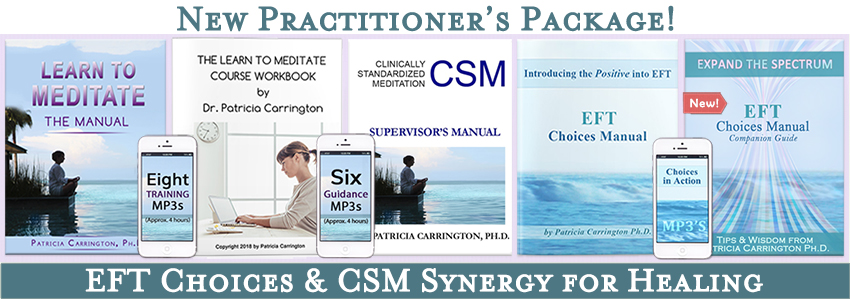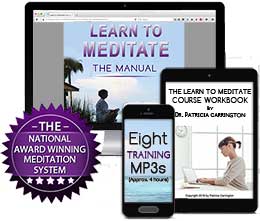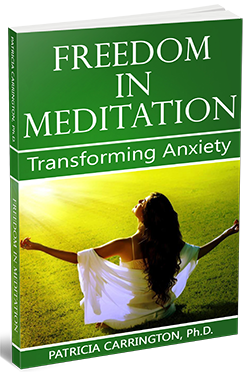In this audio clip, Dr. Carrington explores why and how meditation lessens self-blame and self-criticism, as well as how meditation increases self-acceptance.
Play Audio (Duration: 3 minutes 17 seconds)
Listen right now, or download for later. (To download, right click or control click the link)
Meditation to Lessen Self-Blame
This audio clip is excerpted from Dr. Patricia Carrington’s Learn to Meditate Course
One of the most impressive and surprising effects of meditation, though, is the way it often changes one’s attitude about oneself. Meditation seems to lessen the unproductive self-criticism that so many of us have.
I don’t mean by that constructive ways of criticizing our own work, so that we can do better. Or, the constructive criticism we may give ourselves about our own behavior, so as to make it conform to our own ideals. I mean the nagging put-downs that people can give themselves all day long without realizing they’re doing it. They will say to themselves, “Oh, how stupid of me, or what’s the matter with me that I couldn’t do this better.” This kind of harping on oneself can pull down a person’s self-confidence very quickly.
It can also make them defensive and angry, because no one can stand a constant barrage of criticism. Especially, if it’s coming from themselves and they can’t escape from it. For such people, meditation has a very interesting effect. It seems to make them more accepting of themselves; kinder to themselves.
I think this has to do with the fact that when we meditate we’re in a very special place mentally and emotionally. We’re quiet and we’re aware of ourselves, our own bodies, our own breathing, our own beings, but in a very different kind of way than we are at any other waking time.
During meditation, nobody is asking anything of us. We’re responsible to no one. You don’t have to meet anyone standards or accept anyone’s criticism or even consider it. But, more importantly, we’re quietly being lulled by a repetitious stimulus, a word, a sound that we’re repeating, or buy something else to which we’re attending as our focus of meditation.
That means that the voice of self-criticism is largely quieted during meditation too. We’re not asking anything of ourselves at this time. We’re not requiring that we measure up to any of our expectations or that we do anything or that we be anything.
We’re just existing. And, in this quiet time, we get to know ourselves in a new way, and this seems to have an effect on our lives outside of meditation too. It helps us except ourselves at all times, to be less critical in general, to be able to roll with the punch more and accept your limitations more easily. This is a very subtle effect but a very important one.






